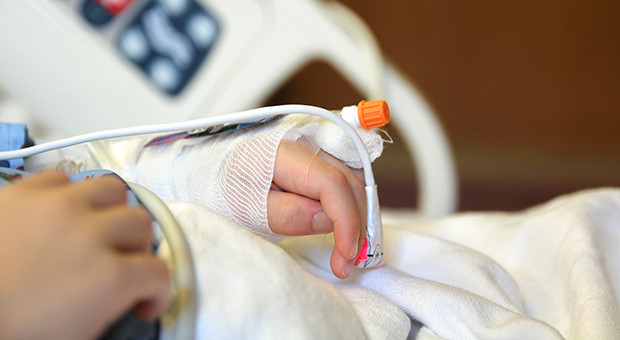Getting ready to undergo a surgical procedure can be unsettling for adults — but especially so for a child who doesn’t understand the concept. That’s why trained practitioners take special steps to prepare children for surgery.
According to Dr. Dorothy Rocourt, a pediatric surgeon at Penn State Hershey Children’s Hospital, the psychological impact is more concerning when the patient is a child.
Keeping kids calm
Pediatric patients, especially younger children, experience separation anxiety and fear from not understanding their procedure. They also pick up on what their parents are feeling.
“If the parents are super nervous, the children are just as nervous,” Rocourt said. “When they are comfortable with what’s going on and with the provider, they send off those vibes or cues to their child.”
Hospital staff attempt to relieve anxiety by making sure families are well informed about what is going to happen to their child.
Child Life specialists are often called in to explain things to children in a way they will understand, such as by interacting with them in a playful manner.
“Parents can use simple words to help their child understand why they are going to the hospital or why they need surgery,” said Ashley Kane, manager of the Children’s Hospital’s Child Life Program.
Kane recommends that parents be honest with their children about where they’re going and what’s going to happen. Additionally, the trip to the hospital should never be made out to be a punishment or associated with doing something bad.
“We want to make sure they understand that the doctors, nurses and staff are there to help them get better and not make it sound like the people a child meets in the hospital are mean or bad,” Kane said.
Comfort items like a favorite stuffed animal or blanket or even a preferred bottle or sippy cup can be especially helpful.
“It’s really important to have those familiar things along with them when they’re in a different environment and out of their norm,” Kane said.
Caring for children with special needs
Rocourt said pediatric staff take additional steps when caring for children who have special needs.
“When we’re assessing them in the office, we take cues from the family on how to approach the subject with such kids,” she said.
They provide additional reading materials for parents and families with older children who may have autism to prepare them for their surgery.
The Children’s Hospital also has multi-sensory distraction stations called Vecta machines. Children can awaken from anesthesia to soft music, water sounds, colorful lighting or images projected on the ceiling.
“It really helps with the children with autism because it sort of puts them on a different plane, in a different world; it puts them in that comfort zone,” Rocourt said.
Individualized approaches
Since the physiological needs of children differ from adults, special attention must be paid to their breathing and medication needs.
Rocourt said their airways tend to be shorter and angled differently, especially in infants.
“There are size-related limitations in terms of instruments that we may use for certain procedures,” Rocourt said.
Anesthesia and other medications are administered primarily by weight but some pain relievers come with age restrictions as well.
“It’s not a standard one size fits all,” she said.
Local pain blockers are often used in the youngest patients and Tylenol is used for pain control.
The importance of extensive training
Because their young patients require special treatment, pediatric surgeons undergo rigorous training.
According to Rocourt, most of her peers have had up to 12 years of training before they go on to practice pediatric surgery, starting with a five-year residency in general surgery.
“The vast majority of pediatric surgeons are not going to only have the training for pediatric surgery, they would have done at least two years of formal research plus an additional year of some other specialized training,” she said.
Most have additional certifications in different specialties in addition to two years of pediatric research.
The Medical Minute is a weekly health news feature produced by Penn State Milton S. Hershey Medical Center. Articles feature the expertise of Penn State Hershey faculty physicians and staff, and are designed to offer timely, relevant health information of interest to a broad audience.
